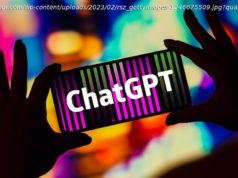The artificial intelligence chatbot ChatGPT can, among other things, generate essays and write computer code. Since being released to the public for testing late last year, it has raised concerns about students using ChatGPT to complete their homework and led some secondary public schools to ban it and college professors to change their course assignments.
The artificial intelligence chatbot ChatGPT can, among other things, generate essays and write computer code. Since being released to the public for testing late last year, it has raised concerns about students using ChatGPT to complete their homework and led some secondary public schools to ban it and college professors to change their course assignments.
Ted Underwood is a professor of English and of information sciences and the associate dean of academic affairs in the School of Information Sciences. He recently commented in Inside Higher Ed on how to view the technology’s place in higher education. He talked with News Bureau arts and humanities editor Jodi Heckel.
Discussion tends to focus on ChatGPT because this product was made widely available for free last fall—and it was a little easier to use than earlier models of language. But ChatGPT is far from unique.
ChatGPT is based on technology that has been around in one form or another since OpenAI released the first version of generative pre-trained transformers in 2018. The basic idea is that a model is trained to predict the next word in an observed sequence of words. Then when you write a short passage—a « prompt »—the model can predict the next word in the sequence, and then the next word, and so on. To do a really good job, a model needs to recognize high-level patterns and behave as if it understood language. Because models like this grew better at generalizing as researchers increased the size of the model, they are sometimes called « large language models.






